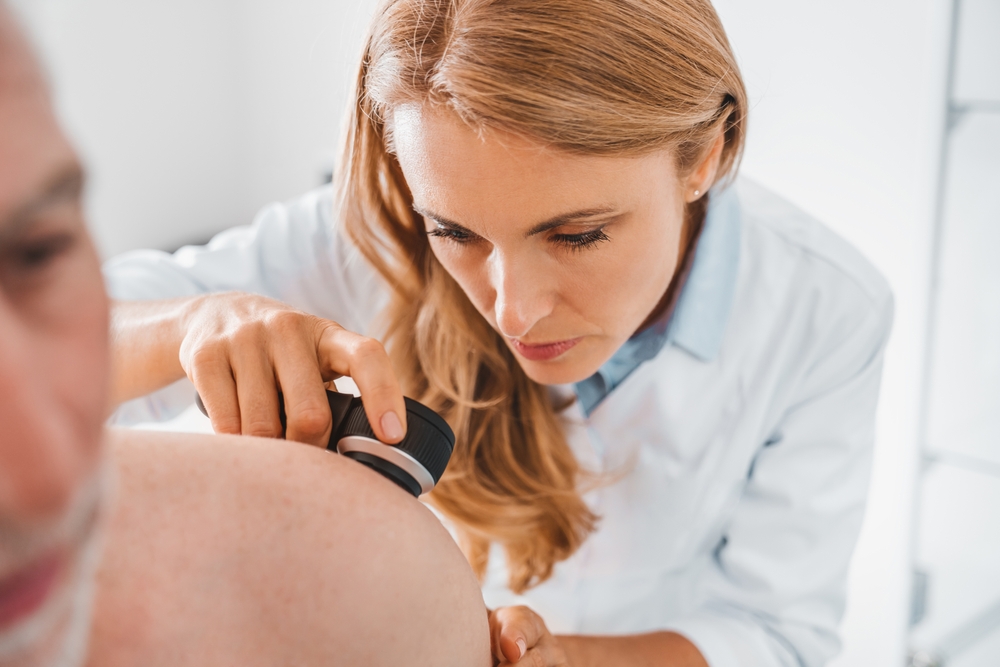Cancer diagnostics for sustainable care (CARES)
The Hague University of Applied Sciences is developing a smart and affordable screening device for early detection of skin cancer in primary care. This enables faster diagnosis and more sustainable care.
Centre of Expertise Digital Operations & Finance
Centre of Expertise Health Innovation

Cancer is a major public health problem and a huge economic burden on society. The number of people with cancer is expected to rise significantly in the coming decades. The disease burden is also increasing: not only is cancer becoming more common, but treatment options are also increasing, meaning more people will need long-term and intensive care. In this research, The Hague University of Applied Sciences contributes to the development of smart technology for early detection and more effective treatment of cancer.
Motive
To make care for cancer patients more appropriate and sustainable, early detection is essential. This allows for less invasive and more effective treatments. It is also important to gain faster insight into how effective a treatment is and, where possible, to reduce the burden on the patient.
Especially skin cancer is becoming more common. The initial assessment of a suspicious spot often occurs in primary care, for instance by a general practitioner or skin therapist. This initial assessment is not simple and can lead to both overdiagnosis and missed cases. That is why The Hague University of Applied Sciences is working on the development of user-friendly screening equipment that can also be used outside the hospital.
Objective
The project focuses on designing and testing an affordable and user-friendly point-of-care device that can assess skin abnormalities based on light measurements. The device takes pictures of abnormal spots on the skin using light of different wavelengths, from visible light to near and shortwave infrared. It thus provides information about both the skin surface and the slightly deeper layers of the skin.
This enables primary care providers to recognise suspicious skin lesions earlier and make more targeted referrals. This ensures that patients receive the right care more quickly and unnecessary treatments are prevented.
Expected results
The project should lead to a compact point-of-care device that allows general practitioners and skin therapists to assess suspicious skin lesions more quickly and reliably. The expected effects are:
- Earlier detection of skin cancer
- Fewer unnecessary referrals and biopsies
- Lower pressure on secondary care and cost savings in care
Collaboration partners
This project is part of the scientific programme Medical Delta Cancer Diagnostics 3.0 and is a collaboration between TU Delft, LUMC, ErasmusMC and The Hague University of Applied Sciences. The Hague University of Applied Sciences is coordinator of one of the work packages, which focuses on the technical development and validation of the device.
Duration of the project
December 2024 to September 2028
Funding
This project is funded from the Medical Delta Cancer Diagnostics 3.0 Programme.
Team
From The Hague University of Applied Sciences, the following people are involved in this project:
- Steven van den Berg, Professor research group Photonics
- Joke Korevaar, Professor research group Oncological Care
- Arjan Lock, Photonics lecturer-researcher
Contact
Do you want to know more about the project CARES? Please contact: Steven van den Berg.
Read more
Medical Delta: Diagnostiek van kanker voor duurzame zorg (CARES)